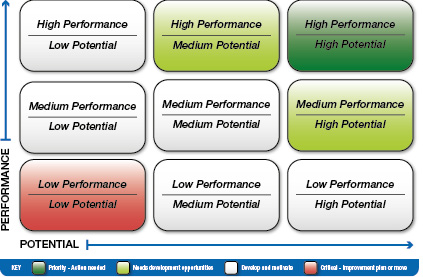Attraction and retention


With over 2,200 staff employed across three locations in Northern Ireland, Allstate NI are well established as a leading employer. agendaNi speaks to Head of Human Resources James Norris about talent management methods in such a large organisation and fast moving sector.
Established in Northern Ireland as Northbrook Technology since 1999, the organisation which provides high quality software development services and business solutions for its US parent company’s global operations, was renamed Allstate NI in 2008 and continues to expand.
Having joined the company the year they set up in Belfast, James Norris believes that the decision to locate in the city was based on the most important element of the talent management process – a high-performing talent pool.
“The technology talent pool in Northern Ireland was evident in both levels of skilled graduates and existing experienced staff. That talent pool has continued to flow and the universities here have continued to respond to the needs of local employers in the technology sector.”
While Norris is in no doubt that constant collaboration with the higher education sector is key to the growth of the organisation and other businesses in the technology space, he also understands that the fast-paced evolution of the sector is making it increasingly harder for the institutions to produce graduates with technical skills to suit most companies.
“There is no doubt that the higher institutions here are providing a very high level of life skills and technical skill to their graduates. However, as talent managers, employers need to fully understand that additional investment will always be required to make employees ‘work ready’ and tailored to their specific systems and styles.”
Recruitment
As the talent pool for companies widens, thanks to both the digital age and the freer movement of people globally, ensuring that the best local talent is retained, is a key focus for Allstate. Norris points out that many in the IT sector, Allstate included, are now targeting their future employees at graduate level through placements.
“A lot of our placement employees, having experienced our workplace, will come back and join us once their education is complete. There is also a secondary benefit to this as we are confident that a positive experience in our workplace will mean that our placement employees become ambassadors for the organisation amongst their peers.”

Norris believes that the attractiveness of Allstate NI as a career path is not based on one single selling point and instead relies on a mix of attributes: “Our relationship with our parent company means that our employees have the opportunity to work with a huge variety of technology and engage with a diversity of types and scales of different projects,” he says.
“That’s a big selling point in the IT sector, but just as important is the stability, clear career advancement and development opportunities here. Allstate NI has been identified as a progressive environment and socially cohesive place to work and our employees enjoy a great degree of working flexibility around their lifestyle.” As a result, Norris states that the organisation has a better than average retention rate when compared to similar employers of its size and calibre.
Performance management
Constant review of employee performance is a key element of talent management, allowing for both greater talent identification and improvement measures, if needed.
“We have a robust and effective performance management system that allows every employee to be reviewed on a constant basis, and rated annually. Our dynamic continuous assessment is effective in identifying staff for promotion and raising flags for intervention, both positively and negatively.”
Talent recognition, Norris outlines, is important to the company’s promotion process, where internal employees are given the opportunity to apply upwards on the company’s career band structure. While the performance review is largely based on targets and goals which have been set out by both employee and manager in collaboration, Norris explains that the organisation also run a secondary talent management tool, focussing mostly on potential rather than performance.
“The nine-box talent management tool incorporates performance but is designed to hone in more on future potential (see nine-box chart right). This form of identification is key to the compiling of development plans or improvement plans. The process is not a linear ranking, instead it is flexible to people’s working types.
“To give an example, you can have someone who is the best in their field at their specific job but who has no ambition to move up the responsibility ladder. They fall in around the middle of the graph. These people are crucial to the day-to-day workings of the business and we review them to ensure that they maintain a high level of performance and are provided with the development opportunities to sustain high performance in the future. Those who display both high levels of performance and potential, can be earmarked for a development programme and, similarly, those who are underperforming in both fields can be targeted for an improvement programme.
“This process is not only beneficial to the employee and their development but also a good gauge of the critical resources and future talent in the company.”
Training
Norris states that in-house training is vital to both employee and organisation development. However, he believes that greater diversity is needed in this area. He explains: “Allstate’s technology team have two dedicated trainers, providing vital in-house training to a range of teams. However, we recognise the importance of self-development. The pace of technology advancement means that the investment must be made in those areas where it will have the greatest impact. This means that employees are provided with the training and skills that best suits their specific team.
“We encourage self-development and, to support this, have integrated more on-line courses and developed greater partnerships with technology/education training firms. We promote a message to our staff about owning their own career and encourage more lateral career moves to develop their skills and experience.”
Reward and recognition
“It’s important that our staff feel valued in the marketplace,” insists Norris, “however, this will be different for each individual. At Allstate NI we have a workplace that is more than just the working day, with a range of social events happening every month.
“Importantly, our sports and social club and corporate social responsibility (CSR) activities are mainly employee-led. This offers not only a chance for the employee to identify with the organisation but also utilise the organisation to become involved in initiatives which they are passionate about.”
Workplace wellbeing
Norris explains that creating a positive working environment is crucial to attracting and retaining the best talent. Allstate NI are currently running a revised diversity programme with all staff over the next 18 months. “The themes of diversity, especially in Northern Ireland, have changed greatly over recent years. Our particular theme for 2017 is putting greater emphasis on unconscious bias in the workplace in relation to gender, age, race and sexual orientation. Creating a greater awareness around this will hopefully ensure that Allstate NI continues to be a desirable place to work.
“Our employees are our critical resource and over the last 15 years we have always had a key focus on the health and wellbeing of our workforce. As well as a number of established services that we have in place, later this year we will be hosting a health and wellbeing fair for all employees. The talent management process is not just about getting the maximum output from employees but also ensuring that their work environment is right for them to succeed.”






